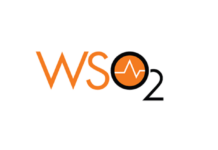By Col Binu Sharma, Senior Vice President-Nursing Services, Columbia Asia Hospitals Pvt. Ltd
Doctors are often considered no less than God for us, saving and curing us from various illnesses, ensuring that we lead a healthy life. However, while doctors usually receive the appreciation and gratitude due to them, there are some people in the medical systems who give more than they receive. Doctors might not always have all their time to spend with one patient. But we cannot ignore the fact that patients require treatment and time beyond medicines and surgeries too and that is where nurses come into picture.
More than patient treatment, patient care is highly significant and goes beyond the medical aspect. It is not an uncommon understanding that patients often go through stress and anxiety about their conditions, their disease, injuries, medical proceedings, surgeries, or recovery. Hence it becomes crucial that the patient’s emotional needs are adhered to as much as their physical condition. Nurses in a hospital set-up facilitate this aspect quite well in by their display of empathy, and their availability. Nurses nurture a synergized relation with patients, and stand tall as the back-bones of the hospital, being there for the doctors as well as the patients.
Through their understanding and support, nurses aid
– In figuring out the root cause of the patient’s sickness
– In understanding symptoms and explanations closely
– Assist in proper diagnosis and appropriate treatments.
– Shorter hospital stays
– Alleviation of pain and decreased anxiety
– Positive outlook towards recovery
– Contributes towards improved patient outcomes
– Bridging the gap between patient, companion and doctors
The presence of nurses has also made the home-based programs quite accessible, affordable and believable too when the patient doesn’t necessarily require to stay lying on the hospital bed. Be it the birth of a child, recuperating after a traumatic accident, or providing end-of-life care, nurses are part of some of the most important events human beings experience at every stage of life, nurses are making increasingly important aspect of both medical care and social interaction look easy.
Through a plethora of duties, nurses also provide not just physical care in terms of administering medication and providing treatment, but they provide emotional support, counsel and educate families, and collaborate with other medical professionals. Despite providing maximum of the healthcare, nurses more often than not stay under appreciated or not acknowledged for how much they put in.
Some of the major tasks that the nurses handle include:
- Emotional aspect- Nurses perform an emotional labor that not everyone can do. Nurses also have to provide dying patients with respectful end-of-life care, which can be a taxing task physically, mentally as well as emotionally.
- Knowing a little about a lot- While nurses can (and do) focus on specialties; usually they are required to know a little bit of everything, enhancing their knowledge base.
- Bodily Functions – Nurses not only assist their patients with their issues, they also assist them with bodily functions pre, during as well as post treatment.
- Long hours – Nurses work long shifts to provide support and relief to their team.
- Doctors often do not have time to engage with patients much aside from reading their charts and small meetings, so they are not always aware of the patient’s day to day issues and pain levels, while nurses on the other hand are with the patient almost all of the time.
From being mere assistants working on the doctor’s instructions to bandaging the injured patients to now taking care of the patient’s medicines and monitoring their basic medical conditions, nursing has evolved over the years.
Those in the nursing profession no longer have to limit in providing care but also add extensive training and medical skills to the care they provide. The nursing profession, in general, is becoming more highly educated, and nurses are receiving increased training in specialty areas.
Some of the essential skills that nurses require are:
- Compassion
- Communication
- Ethics
- Critical Thinking
- Attention To Detail
- Confidence
- Adaptability
- Stamina
- Emotional strength
- Medical soundness
- Awareness
Irrespective of age and socioeconomic levels of society, nursing is a profession that impacts all. Whether as a newborn, a young child, an elderly individual, or a person who is recovering from an accident or suffering from an illness, nearly everyone has been through the care of a nurse at some point in their lives.
Caring for those who are sick or injured has become more complicated, and the role of nurses has expanded considerably. Nurses are not only involved in complex care giving, but they are developing mobile medical apps, creating healthcare policy, and even publishing research.
The demands in the medical sector have all the more made the nursing field to be continually growing and expanding to include different levels of nursing, various degree options, and deeper levels of specialization to meet the increasing needs.
Through the advanced degrees available professionally, there has been an ease for the doctors as nurses are more educated, aware and of a larger help to doctors by being appropriate to handle the small accidental injuries and even treat some usual illnesses. This has also allowed for more employment growth and for the availability of a career choice for some who want to be associated with the medical sector but cannot be doctors.
Corporate Comm India(CCI Newswire)





















